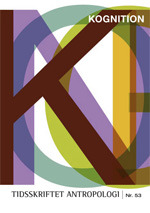KULTUREL DIVERSITET OG PSYKOLOGISK ENHED: Eksemplet religiøse ontologier
DOI:
https://doi.org/10.7146/ta.v0i53.106725Resumé
How do we explain that people believe in apparently bizarre things as in Evans-Prichards’s
study of the Azande beliefs in witches? It is argued that radically nativist theories on the
one hand and radically culturalist explanations on the other are inadequate. Rather, a
more detailed account needs to be worked out. Taking the example of religious ontologies
to which Azandes witches belong, it is argued that religious ontologies consist of a
relatively limited catalogue of counter-intuitive concepts on a worldwide basis. The
problem is then how to explain why only some of these concepts are present in one
culture and others in another culture. Also it is a problem how to explain why these
religious ontologies are relatively stable within one culture over long durations, that is,
why a kind of cultural inertia exists. It is argued that the mechanism which stabilises
cultural knowledge is validation contexts of this knowledge. Validation contexts are
situations in which some knowledge is validated as true and other as false. Among the
Azande these are the different oracles. The oracles are anthropomorphised in the ritual
situation. But they are also sociomorphised, that is, considered a part of the wider
society of the Azande. As society has a hierarchy, so do oracles. This creates a knowledge
hierarchy among them. Some oracles give the ultimate truth while others are not credible.
When questions about witches as causes of misfortune are verified in the highest oracle
they remain a part of the religious ontology, which is why they are later again inferred as
causes of misfortune and again put as questions to the highest oracle. This looping
could explain the cultural inertia which is often testified in many cultures.
Downloads
Publiceret
Citation/Eksport
Nummer
Sektion
Licens
Ophavsretten til artiklerne i Tidsskriftet Antropologi tilfalder forfatteren.
Artikler publiceret i Tidsskriftet Antropologi må citeres, downloades og videresendes for ikke-kommerciel brug, under forudsætning af normal akademisk reference til forfatter(e) samt tidsskrift, årgang, nummer og sider. Artiklerne må kun genudgives med eksplicit tilladelse fra forfatter(e) og tidsskriftet.


